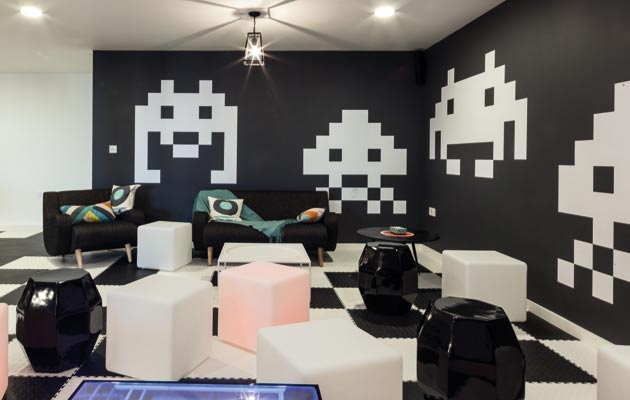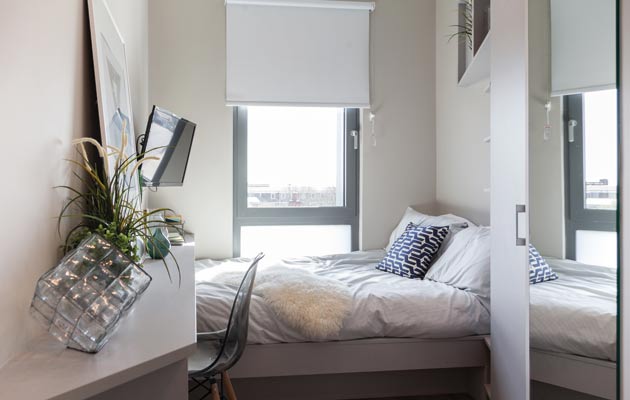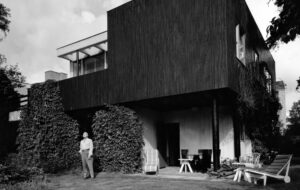|
|
||
|
This west London complex presents co-living as a lifestyle choice, but relies on a very cynical idea of community, says Debika Ray Flat-sharing has been the default option for urban twenty-somethings for so long that it’s strange that property companies have only just started developing architectural typologies around it. The ‘co-living’ model is now coming of age and, in April, the UK became home to what claims to be the largest of its kind. The Collective Old Oak, a purpose-built structure in west London, promises to bring a ‘new way of living’ to the capital. In practice, this means a little over £1,000 a month gets you one of 551 en-suite rooms, and access to shared areas: lounges, kitchens, restaurant, bar, library, games room and spa. The all-inclusive rent is designed to make life easier for young professionals. It is hoped that a generation used to sharing all online won’t baulk at sacrificing privacy for social interaction. The Collective is selling this as a lifestyle choice: one built around communal experiences and the lure of the present. Networking events, movie nights and ‘spur-of-the-moment barbecues’ will facilitate interaction with ‘like-minded people’, all of whom will manage access to the building’s facilities through an app. The decor is self-consciously hip yet conspicuously anodyne, often veering into cliche (think ‘ethnic’ floor cushions and neon signage). Between the shared spaces, featureless corridors branch off into tiny bedrooms – or ‘crash pads’, as The Collective’s founder Reza Merchant puts it. All this would be palatable if it were marketed merely as short-term accommodation but the point is to create a ‘community’. It’s a word that features often in The Collective’s communications – and a slippery one. In reality, flexible contracts are likely to mean little continuity, while the building’s abundance of facilities will minimise interaction with local people. The residents will themselves be ‘curated’ to ensure the ‘right mix’. With no explicit selection criteria, this is on shaky legal footing, but what’s clear is that the rooms are barely big enough for a double bed let alone a couple, that children will ‘probably not’ be welcome, and that £1,000 is almost two-thirds the average UK net salary. This is community in the most vacuous of senses: a fluctuating, homogeneous group of individuals united not by long-term needs or shared interests, but a lack of alternative or the privilege of not having to worry about the future. But, of course, The Collective is not about creating homes, but making money. It has already set up partnerships with services like Zip Car and Urban Massage, which it eventually intends to charge for access to its residents. By ‘monetising the community’, it hopes one day to offset the room charge. In this proposal lies a bleak solution to the housing crisis: one where your value as a consumer can be traded for slices off your rent, and where community is nothing but a commodity. This article first appeared in Icon 157 – subscribe for more like this |
Words Debika Ray
Above: The games room, complete with a mural based on Space Invaders |
|
|
||
|
A 3sq m bedroom ‘twodio’, which shares a kitchenette with another resident |
||



















